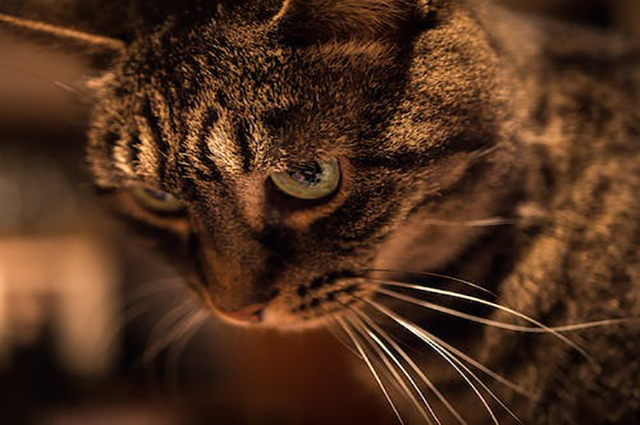Slang( 【俚语】作为非正式语言,主要使用于特定的语境和特定的人群,而且大多数时候都是出自于口语,有时候也会出现在邮件和短信这类的书面语。虽然俚语经常背黑锅,被人们指责为一种不恰当或不正确的语言,但它具有很高的创造力,让英语随着时间推移而不断地发展和创新。而我们每一代人都有属于自己那个年代的俚语,例如 ”Bae” 可以是 babe 【宝贝】的缩写,也可以代表 Before Anyone Else 【比任何人都优先】,这一词是 2014 年开始流行的俚语。还有 “GOAT” 这个英文字,如果你还认为这是指【羊】的话,恐怕已经落伍了。 “GOAT” (大写)其实是一个 acronym ,是【 Greatest Of All Time 】只取首字面的缩写词,用来形容史上以来最捧的人和事,你可以说 This movie is GOAT 【有史以来最佳的电影】。所以,当一个字逐渐流行,它的意思跟用法可能就会改变。这就是为什么我们懂当下年轻人流行的俚语,因为有很多字表面上看上去没变,但实际意思已经跟原来不一样了,俚语跟潮语一样,懂了就可以耍酷哟。
Colloquialism 【俗语】是一种非正式的,多用于日常和熟人之间的交流,例如 “Chock-A-Block” 是指【塞满人和物】; “posh” 是指【上层社会的、高贵的】,但要注意的是 posh 在英国人眼里的概念实在太特殊了,究竟是好话、酸话还是讽刺话,就要具体看说话人的语气了。
以下再举一些 Slang/Colloquialism 的词语,然后和正式英语比较一下:
Mint = very good
Hooking up = meet
Zonk up = tired
Cool = very good
Zilch = nothing
Google it = search for it
Chook = chicken
那么,究竟【俚语】和【俗语】有哪些不同呢?它们虽然都是非正式语言,但俚语主要是用于特定人群,特别是年轻人。但俗语是通常是一般人的生活日常口语;另外在词汇上,俚语是使用者自创的,它们大多数会随着时间的流逝而改变。而俗语则会维持很长一段时间。
Jargon 【行话】是特定人群的专业术语,不同行业有不同术语,外行人一般是很难听明白的。例如警察的专用术语有 “berries and cherries” 是指警车上的警灯, “Code 8” 是指要求掩护或支援。又例如 “BP” ,它是英国石油公司的缩写;在职场上就是指 Business Partner 【业务伙伴】;在金融圈就是指 Basic Point 【基点】;在会计圈就是指 Bank Payment 【银行转账】;在福利服务行业就指 Benefits Planning 【福利计划】等等,所以同样的缩写也可以是不同行业的行话。
Idiom 【成语】是由固定结构或固定形式表示出一定的意思,而这个意思是区别于把里面每个单字拆开解释的意思。英语里面的很多成语都来自于伊索寓言,我们一起看看有哪些是我们耳熟能详的故事:
A piece of cake/It’s not rocket science. 【很容易】
Once in blue moon. 【非常罕见】
Don’t count your children before they hatch. 【不要蛋未孵出就数小鸡;不要高兴得太开心】
Hit the nail on the head. 【切中要害,一针见血】
Last straw breaks the camel’s back. 【压垮骆驼的最后一根稻草】
Too many cooks spoil the broth. 【人多误事】
总结起来,当我们要翻译俚语、俗语、行话和成语时,是一件很不容易的事。所以下周我会介绍如何翻译这类象征性语言的方法。
Slang is a type of language consisting of words and phrases that are regarded as very informal, they are more common in speech than writing and are typically restricted to particular context or group of people. Every generation has its own slang - very informal language or specific words used by a particular of people.Slang sometimes gets a bad rap for being inappropriate or incorrect, but aside from being highly creative, it shows that the English language is constantly evolving over time. For example, “Bae” - before anyone else or a shortened version of baby/babe, another word for sweetie. And you can also call your male friend “bro” etc.
Colloquialism is a word or phrase that is not formal or literary and is used in ordinary or familiar conversation. For example, “Posh” means riches(high or upper)class; “Chock-A-Block” means crammed full of people or things.
Here is some more slang or colloquialism and the formal synonym:
Mint = very good
Hooking up = meet
Zonk up = tired
Cool = very good
Zilch = nothing
Google it = search for it
Chook = chicken
What is the main difference between slang and colloquialism?
- they both use informal language, slang is used by certain group of people especially teenagers, etc. colloquialism is used by ordinary people in everyday speech.
- Vocabulary in slang is created by the users thus it is most likely to change with time. Vocabulary in colloquialism may last longer than slang.
Jargon is terminology(special words or expressions) used or understand by a profession or specific group that are difficult for others to understand. For Example, we have police jargon in“berries and cherries” mean the lights on the top of the police car; “Code 8” mean request cover or backup.
Idiom is a group of words in a fix order that have a particular meaning that is different from the meanings of each words on its own. There are so many English idioms came from the Aesop Fables, let’s see what they are
- A piece of cake / It’s not rocket science (it’s very easy)
- Once in a blue moon (very rarely)
- Don’t count your chicken before they hatch (Don’t count on something good happening until it’s happened)
- Hit the nail on the head (Get something exactly right)
- Last straw breaks the camel’s back (when a problem has occurred one too many times)
- Too many cooks spoil the broth (more people who are involved in the process the worse the result)
So accurately translating slang, colloquialism, jargon and idiom can be very tricky. Next time, I will show you the methods to translate figurative language.






